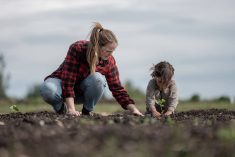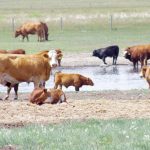2008 revolutionized our expectations for commodity prices but it didn’t put an end to sleepless nights on the farm. 2012 will see farmers taking more control. Here are three of the ways they’ll do it.
1. Roughly one-third of our farms have no successors. On another third, there’s a chance that the children might want to farm, but only a chance, and on large numbers of such farms Mom and Dad have real concerns about whether their children have what it’s going to take to protect and grow the family’s assets.
Read Also

Building a farm legacy that outlasts you
A farm’s legacy isn’t just about the land; it’s also about the values and the impact that continue long after the current owner has stepped away.
At the same time, there are large numbers of dedicated, bright young people who want to farm but lack the capital.
Today, we still lack good matchmaker services to help the farmers connect with such young people, let alone to help the two sides structure agreements that would see the farm survive and at least a portion of the ownership transfer to the young person over coming years.
That will begin to change this year. Governments might get involved, but either way, significant numbers of farmers will find ways to involve non-family members in their succession strategy.
2. Farm values will also change. Until now, our family focus has been directed at creating a nurturing environment for our children, respect for our mid-career farmers, and an honoured and respected old age for our seniors.
Now, there will be more emphasis on a healthy marriage and a rewarding life for Mom and Dad. There will be trouble in the countryside for farms that don’t make the transition. We’re already hearing anecdotal evidence that divorce rates on farms are rising, and this time it’s Mom and Dad who are going their separate ways.
Mom wants to reap the rewards of a lifetime of hard work. She wants to travel and to taste all sorts of new experiences. Meanwhile, Dad’s life and identity are tied up in the farm. Despite financial success, he doesn’t want to let go.
2012 will be a year of turmoil on many farms that don’t decide to recognize and deal with this issue.
It’s simplistic to say that on farms where the opportunity for change is embraced as an opportunity for the farm couple, there will be growth and happiness. Still, there is truth in it, with wide implications for the farms themselves.
3. More farmers than ever will invest in business opportunities off the farm. No one will count the number of apartment buildings that get built with farm money in our rural towns, and no one will know the number of new retail outlets and businesses that will be set up, but farmers will drive our rural economies.
Farmers know how to make decisions, they have capital, and they have a nose for business opportunities. One upshot, though, is that we will see even more blurring of the definition of who is and who isn’t a farmer.
Are we getting it right? Let me know at [email protected], or phone me at 519-674-1449. Is 2012 the start of something different? Tell me what you think.















